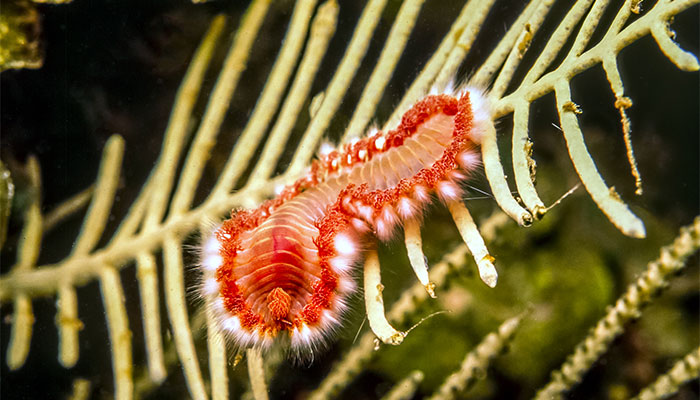The study, published in the journal PNAS on July 10, provides insights into the mechanisms that animals use to make decisions in the absence of payoff information.
The study’s lead author, Daniele Carlesso, from Macquarie University’s School of Natural Sciences, says: “Our research shows that animals can make sophisticated decisions using only locally available information. This has important implications for understanding how animal groups deal with uncertainty in real-life scenarios.”
The study focused on workers of the arboreal weaver ant Oecophylla smaragdina, which link their bodies together to form three-dimensional chains so they can bridge vertical gaps between existing trails and reach unexplored territories – but until these chains are complete and the new area explored, the ants don’t know what might be at the other end.
Each ant makes its own decision about whether to join or leave a chain; but the longer the chain, the more ants are committed to it – and the fewer other tasks these ants can do to help their ant colony.
“We showed that individual ants modulate the time they spend in the chain based on their proximity to the ground, and that this local behavioural rule caps the colony-level investment into chains,” says Carlesso.
The researchers combined experimental analyses of the ants with theoretical modelling, to investigate how groups adjust the effort they invest into tasks in uncertain conditions.
“Our findings suggest that animals budget their investment into tasks to cut their losses in case of an adverse outcome,” says Carlesso. “This is particularly challenging in animal groups that rely on distributed interactions among individuals to achieve consensus.”
The study builds on previous research on chain formation in weaver ants and describes a simple sensory-based mechanism that allows ants to modulate their behaviour using only locally available information.
The model presented in the study aligns with the self-organised nature of chain formation, in that a sophisticated group-level behaviour can be explained by simple behavioural rules followed by individuals without the need to invoke complex cognition or communication among individuals.
The study’s findings have important implications for understanding collective decision-making in animal groups – and the findings could spill over into humans, too.
By shedding light on the processes that allow groups to deal with uncertainty in complex and uncertain real-life scenarios, the study could inform the development of new approaches to collective decision-making in human societies.
“Our theoretical model offers insights into collective decision-making in the absence of payoff information and could prove useful in the engineering of multiagent systems,” says study co-author Dr Chris Reid who is an ARC Future Fellow at Macquarie University's School of Natural Sciences.
“By studying the behaviour of animals like weaver ants, we can gain insights into the mechanisms that underpin collective decision-making and develop bioinspired solutions for swarm robotic applications,” Reid says.
Full paper: A simple mechanism for collective decision-making in the absence of payoff information | PNAS



